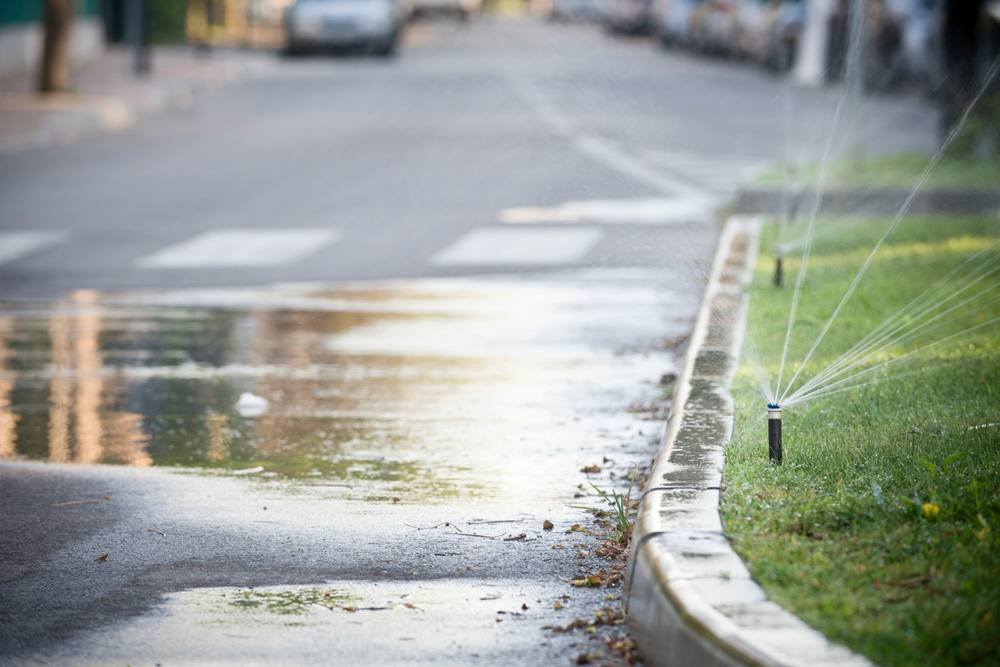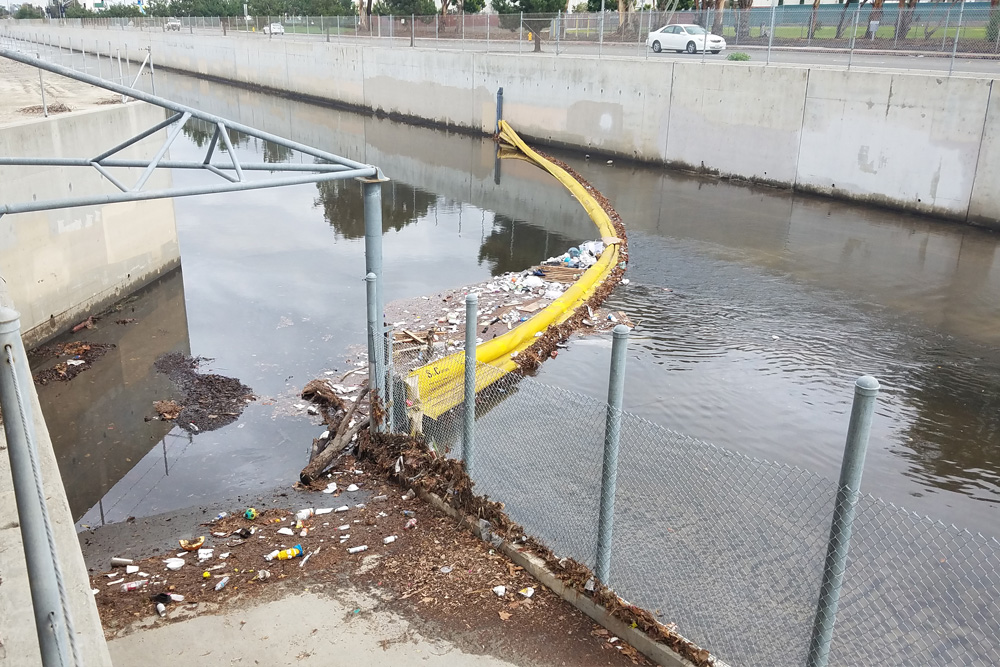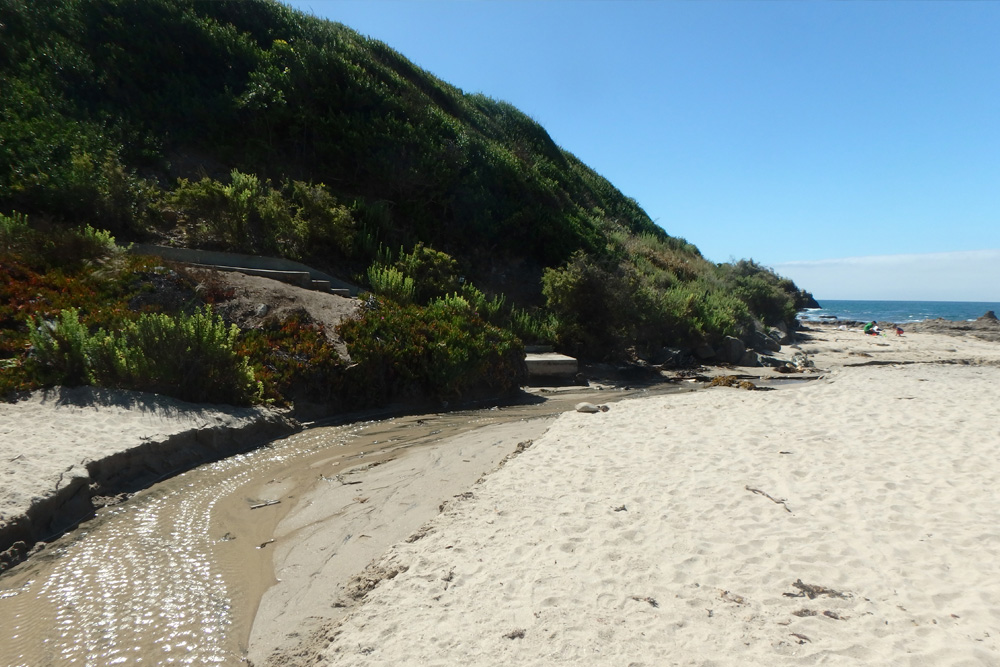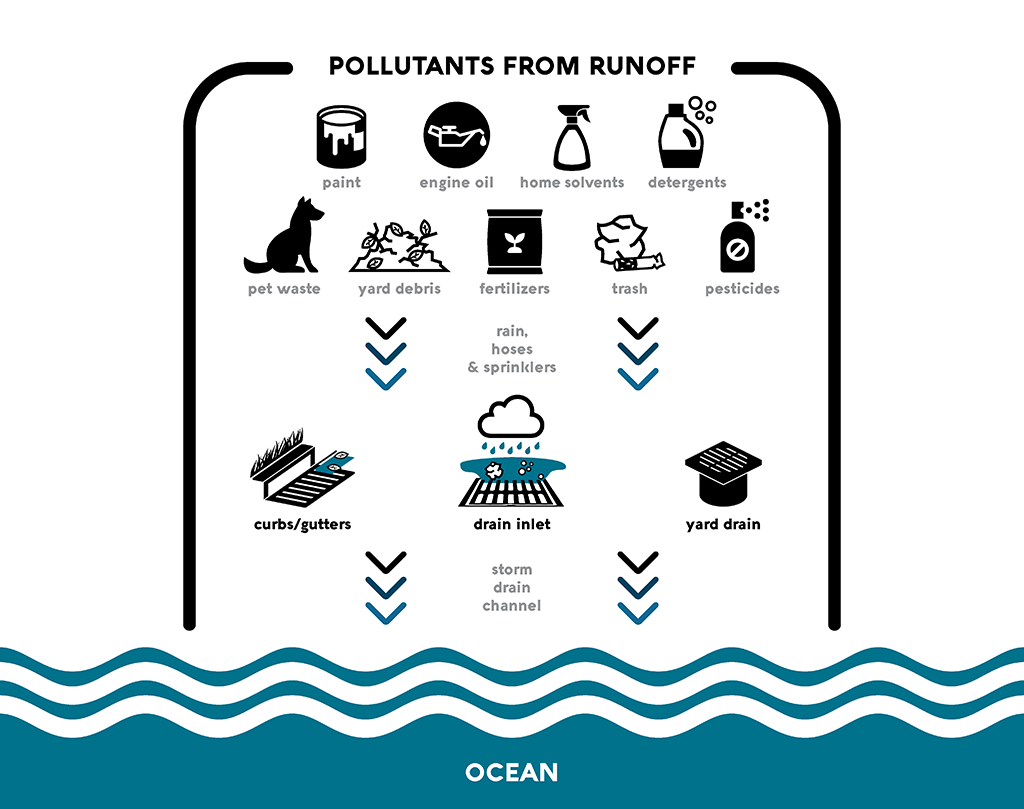What Is Runoff?
Runoff is water from rain and outdoor water use that drains from roofs, driveways, sidewalks, and other surfaces that doesn’t soak into the ground.
What is polluted runoff, and what causes it?
When the water runoff flows over surfaces, it will pick up and carry pollutants it encounters. Many of these pollutants come from waste that we produce or mishandle at our homes. Common runoff pollutants include oil, paint, household cleaning supplies, sediment, pesticides, fertilizers, trash, yard waste, and pet waste.
The everyday activities we do around our businesses, homes, and yards can impact the quality of the runoff that drains into our waterways. Some common examples that can contribute to harmful runoff includes over fertilizing our yards or fertilizing before a heavy rain, not picking up pet waste, and excessive use of pesticides.
Why isn’t runoff treated?
It is not feasible to treat all runoff. Varying intensities, from outdoor water use to intense storm events, make it challenging to build a treatment system that can handle all runoff flows.
Why do we need to manage polluted runoff?
Managing runoff helps improve its quality and reduce its volume over time. Unlike sanitary sewer water, runoff flowing into our storm drains doesn’t receive any treatment before entering our waterways, thus delivering any pollutants that it picked up along the way. This negatively impacts the environment and atmosphere at our beaches. In addition, water that doesn’t seep into the ground runs off to lower areas, which can cause local flooding and stream bank erosion.

How does Orange County manage runoff?
The County of Orange, the Orange County Flood Control District (OCFCD), and the 34 cities of Orange County are required to comply with the National Pollutant Discharge Elimination System (NPDES) program, which is regulated by the Environmental Protection Agency (EPA). In addition to complying with NPDES regulations for its municipal separate storm sewer system (MS4), Orange County has a runoff management program with six minimum control measures, including:
- Public education and outreach on runoff pollution impacts
- Public involvement and participation
- Illegal discharge detection and elimination
- Construction site runoff control
- Post-construction runoff management
- Pollution prevention/good housekeeping for municipal operations

How can I help prevent runoff pollution?
There are many small actions you can take to help prevent runoff. When working around your home or yard, make sure you dispose of products properly, keep items out of storm drains, pick up after your pets, keep yard waste out of the street, and eliminate or minimize the use of fertilizers and pesticides. Check out our Low Impact Development for Residents or Low Impact Development for Businesses pages to learn more about how you can help prevent runoff pollution.

